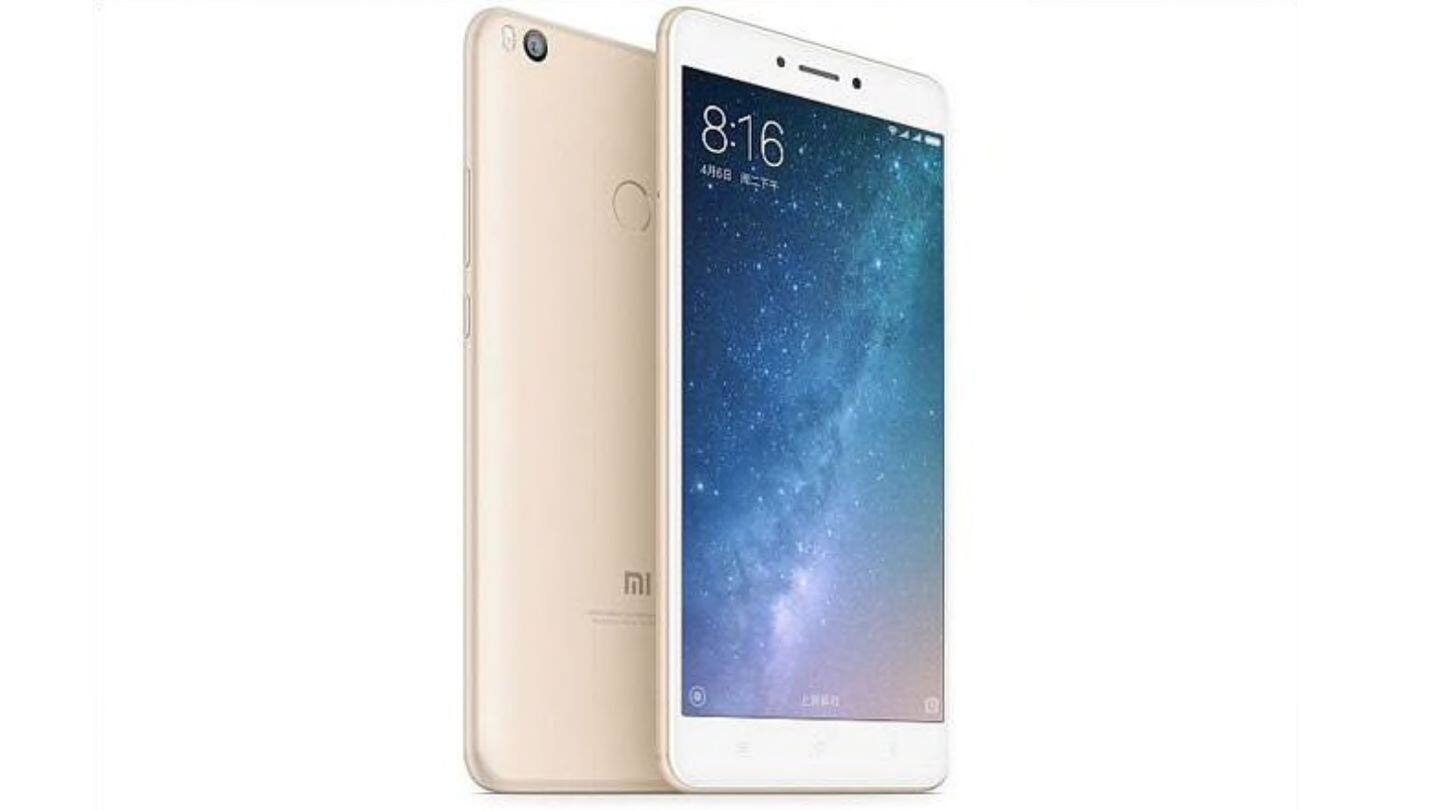Xiaomi Mi Max 3 specifications leaked; launch expected in July
What's the story
Xiaomi is working to launch the Mi Max 3 smartphone sometime in July, according to an earlier confirmation by CEO Lei Jun.
And as we move closer to the phone becoming official, more and more leaks are surfacing on the web.
In the latest such leak, TENAA certification listings may have just revealed the entire spec sheet of Mi Max 3.
Here's our roundup.
Specs
TENAA listing reveals three Mi Max 3 variants
TENAA, the mobile certification authority in China, has listed three Xiaomi Mi Max 3 variants with model numbers - M1804E4C, M1804E4T, M1804E4A.
According to the listing, the Mi Max 3 gets a 6.9-inch full-HD (1080x2160 pixels) display with 18:9 aspect ratio.
The phone is listed to be powered by a 1.8GHz octa-core Qualcomm Snapdragon 636 processor and run Android 8.1 Oreo.
Information
What do the listings reveal about RAM and storage pairings?
The M1804E4C variant is listed to get 4GB RAM/64GB storage, while the M1804E4T and M1804E4A models will come in configurations of 3GB RAM/32GB storage, 4GB RAM/64GB storage, and 6GB RAM/128GB storage. Notably, all the three variants will support microSD card for storage expansion.
Camera & more
Mi Max 3 may pack a massive 5,400mAh battery
The TENAA listing suggests the Mi Max 3 will sport a 12-megapixel rear sensor. However, it is uncertain if the phone will bear a single rear-camera or a dual rear-camera setup.
Moreover, the M1804E4C variant will get a 5-megapixel front camera, while the other two will have an 8-megapixel front sensor.
The Mi Max 3 is also listed to pack a massive 5,400mAh battery.
Leaks
What are the other rumor mills saying?
Some leaks suggest Mi Max 3 will get a vertical dual rear-camera setup, fast charging support, and even wireless charging.
The phone is also speculated to come with an Omnivision 2281 Iris scanner and dual speakers.
Other expected features include a dual-SIM slot, support for dual SD-card, Infrared blaster, LED light for notifications, Dirac-tuned audio along with Qualcomm's aptX and aptX-HD Bluetooth audio codecs.
